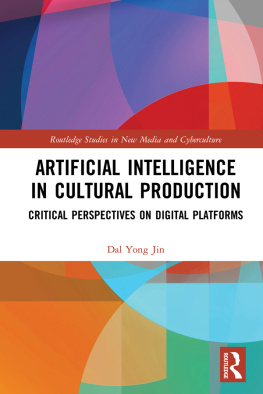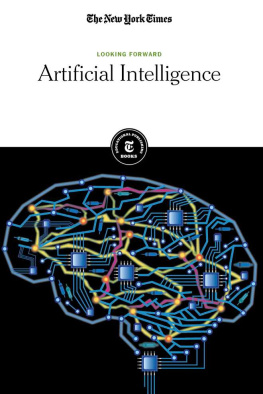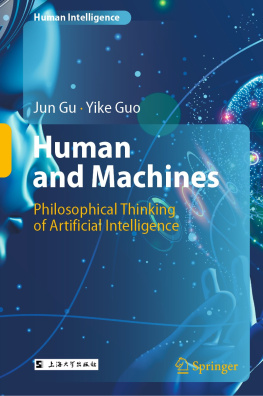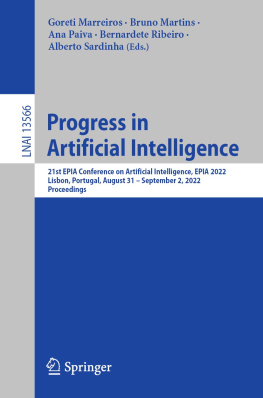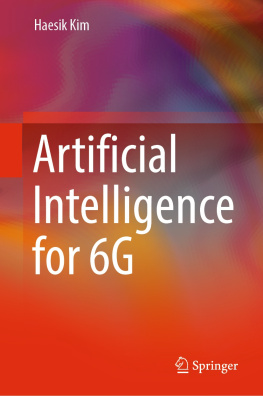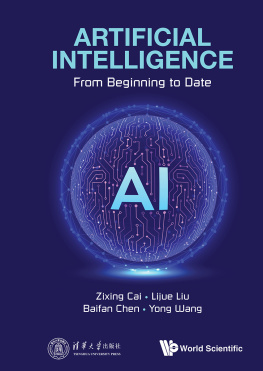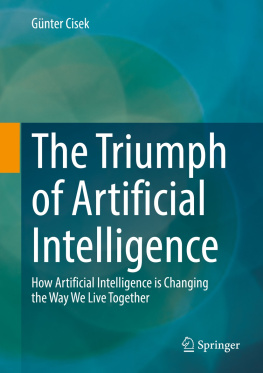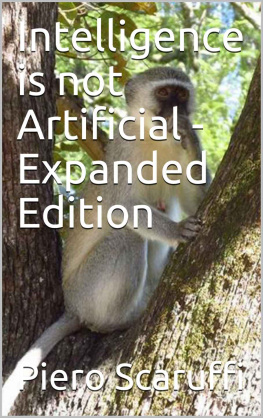Artificial Intelligence in Cultural Production
This book offers an in-depth academic discourse on the convergence of AI, digital platforms, and popular culture, in order to understand the ways in which the platform and cultural industries have reshaped and developed AI-driven algorithmic cultural production and consumption.
At a time of fundamental change for the media and cultural industries, driven by the emergence of big data, algorithms, and AI, the book examines how media ecology and popular culture are evolving to serve the needs of both media and cultural industries and consumers. The analysis documents global governments rapid development of AI-relevant policies and identifies key policy issues; examines the ways in which cultural industries firms utilize AI and algorithms to advance the new forms of cultural production and distribution; investigates change in cultural consumption by analyzing the ways in which AI, algorithms, and digital platforms reshape peoples consumption habits; and examines whether governments and corporations have advanced reliable public and corporate policies and ethical codes to secure socio-economic equality.
Offering a unique perspective on this timely and vital issue, this book will be of interest to scholars and students in media studies, communication studies, anthropology, globalization studies, sociology, cultural studies, Asian studies, and science and technology studies (STS).
Dal Yong Jin is a Distinguished SFU Professor in the School of Communication at Simon Fraser University.
Routledge Studies in New Media and Cyberculture
42 Digital Gambling
Theorizing Gamble-Play Media
Csar Albarrn-Torres
43 Digital interfacing
Action and perception through technology
Daniel Black
44 Women and the Digitally-Mediated Revolution in the Middle East
Applying Digital Methods
Chiara Bernardi
45 The Discursive Power of Memes in Digital Culture
Ideology, Semiotics, and Intertextuality
Bradley E. Wiggins
46 Digital Media, Sharing and Everyday Life
Jenny Kennedy
47 Digital Icons
Memes, Martyrs and Avatars
Yasmin Ibrahim
48 Artificial Intelligence in Cultural Production
Critical Perspectives on Digital Platforms
Dal Yong Jin
49 Loving Fanfiction
Exploring the Role of Emotion in Online Fandoms
Brit Kelley
50 Posthuman Capitalism
Dancing with Data in the Digital Economy
Yasmin Ibrahim
First published 2021
by Routledge
2 Park Square, Milton Park, Abingdon, Oxon OX14 4RN
and by Routledge
605 Third Avenue, New York, NY 10158
Routledge is an imprint of the Taylor & Francis Group, an informa business
2021 Dal Yong Jin
The right of Dal Yong Jin to be identified as author of this work has been asserted by him in accordance with sections 77 and 78 of the Copyright, Designs and Patents Act 1988.
All rights reserved. No part of this book may be reprinted or reproduced or utilised in any form or by any electronic, mechanical, or other means, now known or hereafter invented, including photocopying and recording, or in any information storage or retrieval system, without permission in writing from the publishers.
Trademark notice: Product or corporate names may be trademarks or registered trademarks, and are used only for identification and explanation without intent to infringe.
British Library Cataloguing-in-Publication Data
A catalogue record for this book is available from the British Library
Library of Congress Cataloging-in-Publication Data
A catalog record for this book has been requested
ISBN: 978-0-367-75844-8 (hbk)
ISBN: 978-0-367-75845-5 (pbk)
ISBN: 978-1-003-16425-8 (ebk)
Typeset in Sabon
by Apex CoVantage, LLC
Contents
2 Convergence of AI, digital platforms, and popular culture
3 AI, cultural policy, and the rise of counter-neoliberalism
4 Artificial intelligence and cultural production
5 Netflixs effects in transforming global cultural norms
6 Personalization of culture in the AI era
7 AI journalism, social media platforms, and fake news
8 New media ethics in the age of AI
9 Conclusion
- 2 Convergence of AI, digital platforms, and popular culture
- 3 AI, cultural policy, and the rise of counter-neoliberalism
- 4 Artificial intelligence and cultural production
- 5 Netflixs effects in transforming global cultural norms
- 6 Personalization of culture in the AI era
- 7 AI journalism, social media platforms, and fake news
- 8 New media ethics in the age of AI
- 9 Conclusion
Guide
My academic interests in digital platforms have continued to advance since the early 2010s. When I published my first monograph Koreas Online Gaming Empire (2010), I did not expect that video games could be one of the primary subjects in platforms studies. However, digital games have become some of the most significant areas in platform studies in the early 21st century. With the rapid growth of several cutting-edge digital technologies, including search engines, social media, and smartphones, as well as digital games, peoples curiosity in digital platforms has concomitantly grown, and I have also decided to improve my research and teaching interests on digital platforms from various perspectives, including critical political economy. While there are diverse approaches and frameworks, I have especially analyzed the increasing role of digital platforms in the process of globalization, as several digital platforms based in the U.S. play a pivotal role in comparison to local-based digital platforms in countries like Japan, Korea, and China in the global platform spheres. My works on digital platforms have thus discussed the power relationships between the global forces and the local forces.
Under these circumstances, I have been able to publish several articles and monographs on digital platforms, including Digital Platforms, Imperialism, and Political Culture in 2015. Many scholars in media studies, sociology, and political science have continued to develop the notion of platform imperialism as one of the major theoretical frameworks in media studies, sociology, and geography, which demands me to further develop my research on similar subjects. Consequently, my second book on digital platforms came out with the title of Globalization and Media in the Digital Platform Age in 2019. Unlike other books mainly focusing on the relationships between traditional media and globalization, this book emphasizes the crucial role of digital platforms in the globalization process. Almost at the same time, I started to progress another book project by combining digital platforms with artificial intelligence (AI) in cultural production. In this latest book, I mainly attempted to converge three major areas, including AI, digital platforms, and popular culture, in order to understand the ways in which platform and cultural industries have transformed AI-driven algorithmic cultural production and consumption, as AI and digital platforms together have fundamentally transformed business models and cultural production formats with the emergence of big data and algorithms. As a shifting media ecology drives us to stipulate popular culture from different perspectives in the age of artificial intelligence, I wanted to discuss not only the emergence of AI but also its convergence with digital platforms in cultural production and its implications in a timely manner. Indeed, from social media platforms like YouTube and Facebook to over-the-top (OTT) platforms, including Netflix and Disney+, digital platforms have swiftly adapted AI technology and transformed our cultural activities and daily routines. Due to their close connection with AI, digital platforms have on a large scale reshaped cultural production, from the production of culture to the consumption of culture, which should be fully analyzed and discussed.

